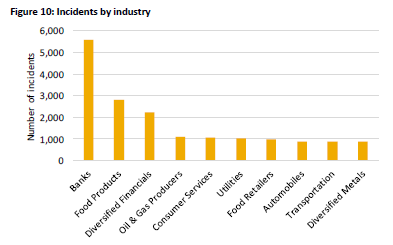Part of the reason I’m passionate about this job is that I believe through my role I have some influence in making (good) companies even better and hence moving capital to good ideas and good companies and away from bad ideas and companies (self-delusional maybe).
(It’s part of why I write about stories that are not often told, when I write plays)
So, it’s both a privilege and a responsibility (yes, Spiderman with great power comes…) to have a two-way conversations with Chairs of companies, billionaires, CEOs and the like… about the long-term, business, sustainability… diversity, employees, operations… the list is long.
(Thoughtful) investors are uniquely placed to have influence at board and senior management level at the most influential companies in the world. (Unthoughtful investors too).
In many ways our influence is overstated. Why should a governance/[insert specialty here] analyst a few years out of university with some understanding about governance frameworks, but limited understanding of the business, have such a say at setting incentives over a committee or board of combined 100s year of relevant experience? So, it is up to those like us, who are interested in the long term, and understand business to make the case both to companies and to pension fund and asset owners alike that we are thoughtful and (socially, financially, strategically) useful.
There are few, if any, easy answers to complex questions. In some ways, staying out of contentious issues (eg don’t invest in Rio Tinto, don’t in Shell) is an easy way of signalling virtuous intentions. As I mentioned on my post on Rio, the fact that selling coal mines doesn’t make them go away is awkward. (Although you can also make the point on new capacity….)
In any case, I’d like to make the case that investors and pension fund managers (some of them at least) are heavily involved in these debates. You can see it across a range of matters – the heavy (live) debates over Shell (as seen through Share Action, Environmental Agency and others, vs Shell management position here), to where we have come to on incentive plans at Weir (FT article here) or Unilever.
I don’t claim to have answers to many of these problems (although in the case of carbon, a carbon tax might help) but we are trying to think about them….
One person to be thinking on these matters a long while (we met back in the early 2000s), is Raj Thamotheram. Raj has cancer and this is a piece in IPE where he reflects on sustainability learnings from the lens of his illness.
Raj is also looking for a Chair for his sustainability think tank - see the role here (1 June deadline)
One of the best Munger speeches on how to think about a mental model of inversion can be found here.
If you'd like to feel inspired by commencement addresses and life lessons try: Neil Gaiman on making wonderful, fabulous, brilliant mistakes; or Nassim Taleb's commencement address; or JK Rowling on the benefits of failure. Sheryl Sandberg on grief, resilience and gratitude or investor Ray Dalio on Principles.
Cross fertilise. Read about the autistic mind here.
More thoughts: My Financial Times opinion article on the importance of long-term questions to management teams and Environment, Social and Governance capital.

